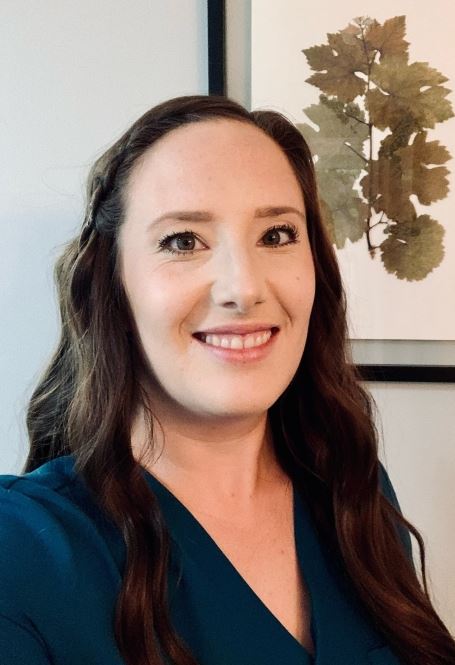The BC Food Protection Association would like to present:
Spring Speaker's Evening Webinar Series
The BC Food Protection Association is thrilled to host a series of virtual webinars to our members in the spring!
Webinar #3:
The Natural Fermentation Movement - No Filter, No Sulfites, No Rules
Speaker: Marissa Neuner, Cellar Door Analytics
Date: Tuesday, May 24, 2022
Time: 5:00-6:00 pm PT

Speaker bio: Marissa Neuner completed her MSc at UBC Okanagan in 2016 studying the microbial, chemical, and sensory differences occurring between Okanagan wines produced via traditional yeast inocula and those produced via spontaneous or ‘natural’ fermentation. Her lab furthered the understanding of yeast impact on wines by utilizing next-generation sequencing to complete strain databases to genetically fingerprint fermentations in cellars from boutique to commercial scales. After participating in 8 vintages within the Okanagan wine industry, Cellar Door Analytics was created in Kelowna BC, in March 2020. Through the combination of practical winemaking experience and analytical research, we provide production guidance and analysis of juice and fermented beverages throughout the Okanagan Valley. CDA has grown to consult and provide lab services for over 50 clients throughout the Okanagan Valley producing wine, cider, beer, and spirits, while also developing novel fermentation strategies through federally funded research grants.
Abstract: Fermented beverages have been produced using naturally occurring yeasts and bacteria found living on grain and fruit surfaces for thousands of years. Following the commercialization and modification of these species in the 19th century, production of wines and ciders was possible on both mass and rapid scales by the purposeful addition of large microbial populations; however, the 'natural' wine movement has increased in popularity around the world once more as a response to the consumer aversion to genetically modified and chemically altered products most common in the beverage industry. Currently in the Okanagan and Similkameen valleys, nearly 455 commercially recognized wine and cider producers are spanning our region. Of these, 88 distributed producers are creating ‘natural’ fermented beverages in a variety of means, largely due to the cost savings and marketing capacity of producing yeast-free, filter-free, or additive-free beverages, with more brands entering this space each year. By relying on the quality of farming, skilled workers with strong sensory aptitudes working in clean spaces, we can make it possible to enjoy these products without fear of spoilage, sickness, or contamination. Yet, largely all natural producers are not required to subject any batches to chemical analysis, or third-party quality monitoring as only VQA registered wine products must adhere to specific chemical parameters that deem them ‘fault-free’. Furthermore, many natural producers are creating brands based on their original roots as farmers, developing products from their own fruit once sold to other cellars, rather than becoming familiar with fermentation and its requirements on a commercial scale. While this builds momentum in the industry for a holistic farm-to-glass mentality, it also builds momentum for anyone to create a brand without specific training and produce consumable products without any regulations following harvest. Fortunately, skill in this industry is ever-increasing due to the increase in ‘natural’ brands saturating the market, requiring the use of fermentation consultants, collaboration, and an influx of organic and sustainable farming practices to elevate the quality and safety of these fermentations without resorting to conventional practices. BC’s presence in the global market of wine and cider is only going to continue expanding with continued consumer demand; however, consumers must also be able to trust that the ethos they are supporting isn’t being done so at an elevated risk.
Poster -
click here
Registration:
Free for BCFPA Members
$20 for Non-Members
Note: Each webinar is a separate registration
The Zoom link will be available in a separate email closer to the event date to those who have registered for the webinar event.
Spring Webinar Series Schedule:
Webinar #1 - TUESDAY, MAY 3, 2022 - 5:00-6:00 pm PT
Topic: ARE ALL FERMENTED FOODS SAFE? LET'S TALK ABOUT IT!
Speaker: Tony Savard, Research Scientist and RDT Director for Agriculture and Agri-Food Canada Guelph and St-Hyacinthe Research Centres
Webinar #2 - MONDAY, MAY 16, 2022 - 5:00-6:00 pm PT
Topic: Fermentation Process of Kombucha and Water Kefir (Rochelle's Presentation) / KALAMITea – Kombucha Alcohol Levels Affecting Mothers, Infants and Toddlers (Lorraine's Presentation)
Speakers: Rochelle Minagawa, MotherLove Ferments & Lorraine McIntyre, Food Safety Specialist, BCCDC
Webinar #3 - TUESDAY, MAY 24, 2022 - 5:00-6:00 pm PT
Topic: The Natural Fermentation Movement - No Filter, No Sulfites, No Rules
Speaker: Marissa Neuner, Cellar Door Analytics
For more information and to register, visit our website:
https://www.bcfoodprotection.ca
Registrants are welcome to send in their questions to our webinar speakers ahead of time - you can email your questions to us at
info@bcfoodprotection.ca or post your questions in the chat during our virtual Zoom webinar!